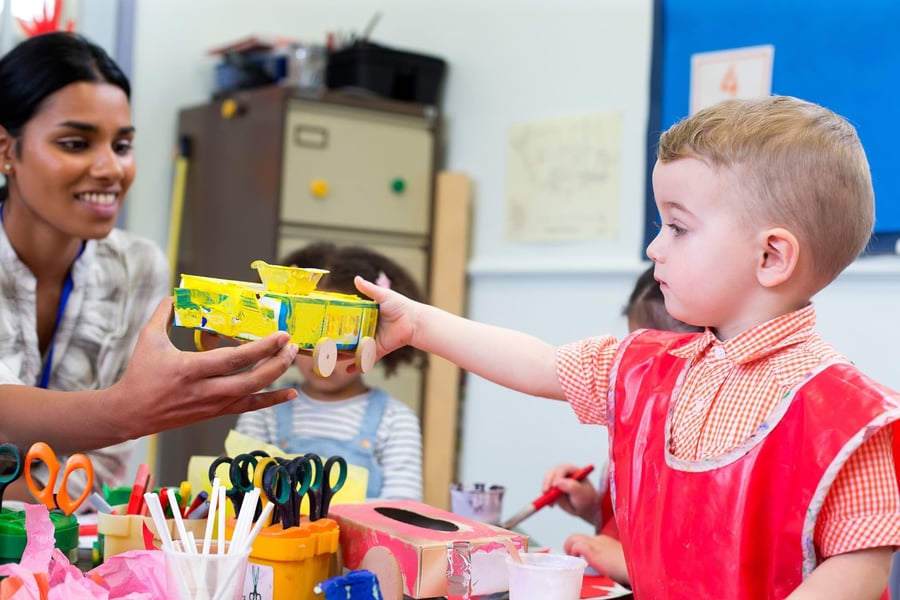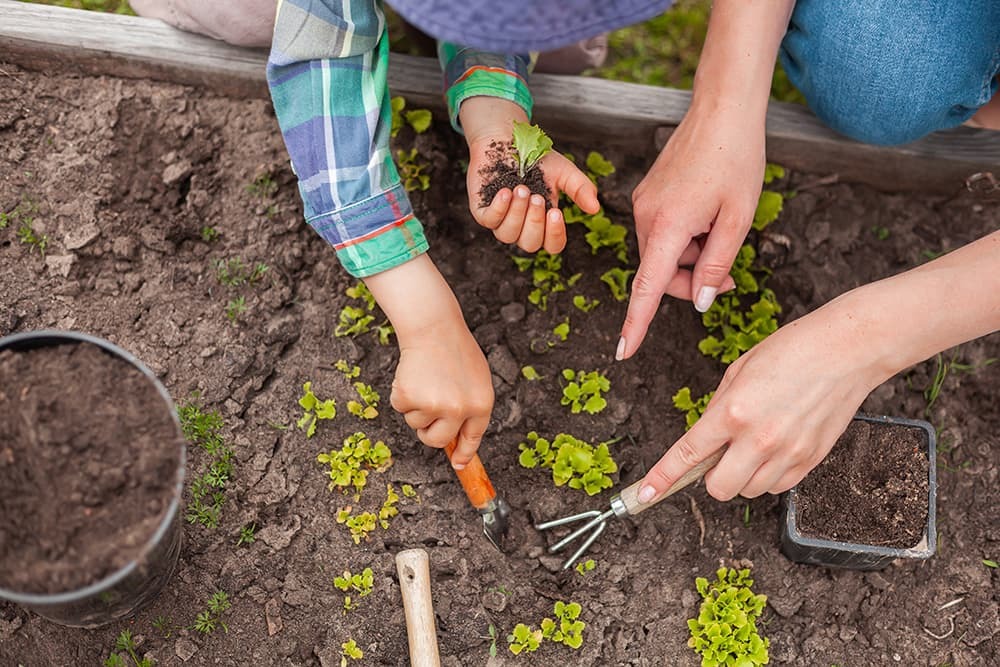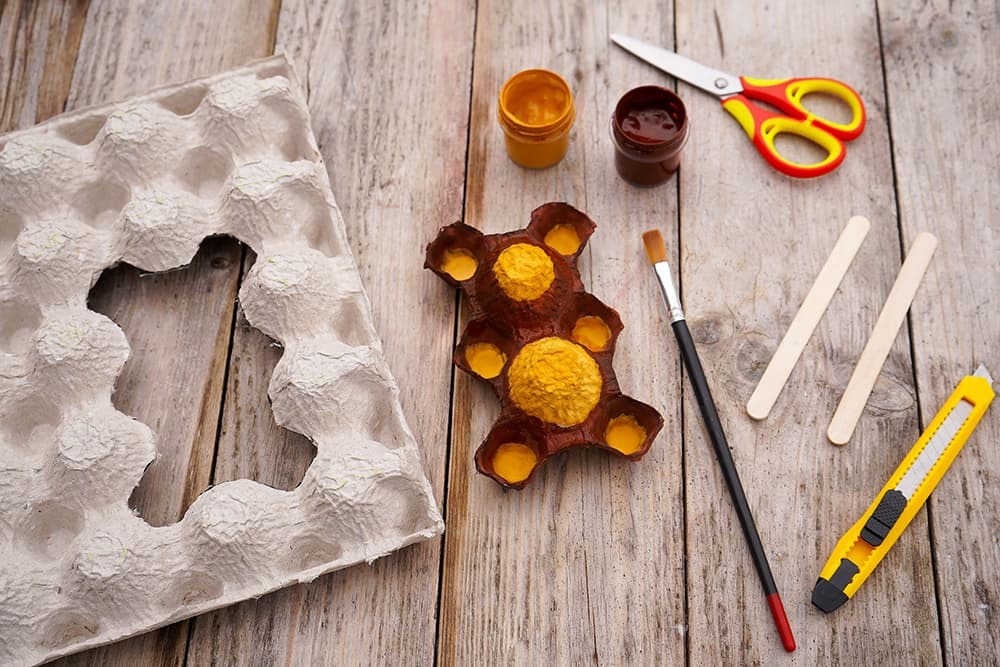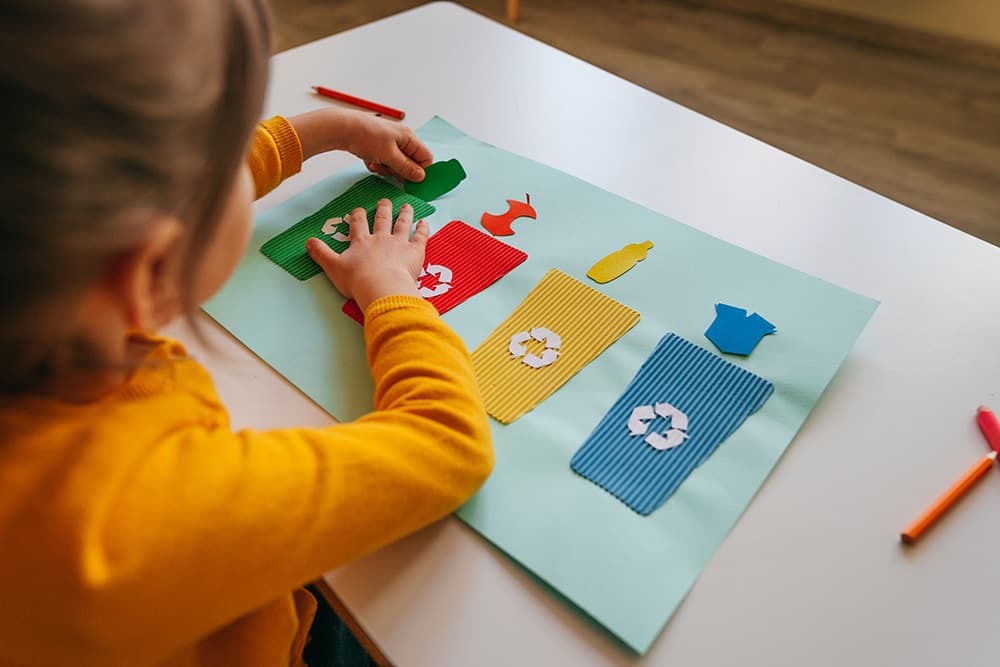
CREATE YOUR ONLINE QUOTE NOW
Switch to Hills Waste Solutions in under 10 minutes
- 97% service reliability
- 4,000 businesses in our community
Reducing waste and promoting recycling in nursery schools
Managing how your nursery disposes of its waste is a huge opportunity. It reduces waste, helps the environment, and can be a fun educational tool for early-year pupils and parents. It may even be a deciding factor for an environmentally conscious parent when choosing a nursery for their child. Given the importance of waste management in the industry, here’s how nurseries can be more sustainable, reduce waste and recycle across the UK.
Locations served
- Amesbury
- Andover
- Bath
- Bristol
- Cirencester
- Chippenham
- Devizes
- Faringdon
- Frome
- Malmesbury
- Marlborough
- Newbury
- Portishead
- Salisbury
- Shaftesbury
- Swindon
- Trowbridge
- Tidworth
- Warminster
- Weston-Super-Mare
- Yate
Page overview
The types of waste produced
Waste impact on the environment
Improving sustainability
Reducing waste case studies
Recycling schemes and innovations
Benefits of waste reduction and recyling
- Food waste: Toddlers are often given meals and snacks, and the food or packaging may be disposed of incorrectly.
- Waste from paper and cardboard: Nursery schools may use large amounts of paper for drawing, printouts, and other lessons.
- Plastic waste: Baby products such as toys, mugs, plates and cutlery are made from plastic.
- Art supplies: Can contain materials harmful to the environment, such as: paper, paint, glue, and pencils and pens.
- Disposable nappies: Babies and young children, especially those in nurseries, use disposable diapers which constitute significant waste.
- Furniture waste: chairs, tables and desks that are broken or worn out.
- Electronic waste: Nurseries might throw away batteries used in electronic toys, child-friendly tablets, computers and televisions.
- Cleaning products: Other items such as dusters, brushes, sponges and gloves that can be used for cleaning belongings and maintaining good hygiene within the nursery.
For anyone working with nursery schools, it is essential to be aware of the types of waste produced and their environmental impact. But finding ways to reduce this is more important and can be fun in a learning environment too.
How is nursery school waste impacting the environment?
Each year, the education sector produces 250,000 tonnes of waste and with over 13,000 early years settings in the UK as of 2022 (source: Day Nurseries), it is believed that they contbute a considerable share of waste in the education sector. Here are some examples of how nursery schools impact the environment:
Landfill space
Did you know that until a toddler is potty trained, they use 4,000 - 6,000 disposable nappies? And sadly, over 3 billion nappies are sent to landfill or burnt yearly, which equates to 400,000 tonnes of waste (source: LCNP).
Plastic pollution
The importance of waste management plays a big role in nurseries up and down the country. Whilst nurseries will try to avoid single-use plastics such as utensils, cups and plates - there are times when it’s much harder to avoid. For example, approximately 1,215,000 single-use gloves and 37,500 nappy wipes are used annually (source: Early Years Alliance). When not disposed of properly, they can end up in landfills, or worse, waterways, oceans, and other natural areas causing harm to wildlife and marine life.
Greenhouse gas emissions and toxicity
A proactive waste management plan is vital for your carbon footprint and impact on climate change. Hills Waste works in partnership with you to tackle your waste management issues at source. Through waste prevention, reduction and recycling you can reduce harmful greenhouse gases such as methane, carbon dioxide, and other hazardous chemicals such as lead or mercury.

Reduce
Nurseries can reduce waste by choosing products with less packaging and replacing them less often. For example, when buying cereal, use refillable cereal stations instead of store-bought with all its packaging. Buying locally is great for the environment too. And try growing your own fruit and vegetables at the nursery or a nearby allotment - this can create a fun, hands-on experience, helping children become more familiar with food and nature.

Reuse
Nurseries can look to use more reusable items. For example, use scrap paper, and retain suitable packaging for craft materials. In the office, always return ink cartridges for refilling. During lunch and snack time, use reusable plates and utensils. And consider reusable nappies that can be washed after each use.

Recycle
When recycling, implement a three-bin system to manage your recycling efficiently. This way, you can recycle paper, plastic, and other materials that they use in the classroom. Recycle food waste by building a compost heap for fruit and veg peelings and grass cuttings - this is an excellent way to teach early years children about decomposition. The compost can even be used on school grounds.
Other ideas:
Sustainable materials: When purchasing new equipment such as furniture, toys, and clothes, choose products made from environmentally friendly materials, such as organic cotton or bamboo.
Energy Efficiency: Install energy-efficient light bulbs and appliances and use natural lighting whenever possible.
Sustainable Transportation: Encourage parents to car share when dropping off and picking up children to reduce transportation-related emissions.
Outdoor Learning: Incorporate outdoor activities and nature-based learning into the curriculum, as it can help children develop an appreciation for nature and the environment.
Water Conservation: Install low-flow fixtures in sinks and toilets and encourage children to turn off taps when not in use.
Committing to becoming net zero
A nursery in Bath has implemented a zero-waste policy. They provide reusable containers for parents to take home leftover food and use washable bibs to reduce waste. They also compost their food waste and use the compost in their gardens.
Becoming eco-accredited
A nursery in Swindon encourages children to express their feelings about taking care of the world and are silver eco schools accredited. This programme sees children lead the way in making little changes that deliver significant environmental differences.
Developing a sustainability strategy
A nursery in Bristol has a strong commitment to sustainability. They use cloth nappies and washable wipes, which reduce waste and save money. They also have a composting system, a recycling program and use eco-friendly cleaning products.
Award-winning green activities
Our business was founded more than 120 years ago, but today, we use cutting-edge technology to deliver the most sustainable, stress-free total waste management service around. We’ve been supporting the circular economy and helping education providers minimise their waste for decades, and the commitments we make to you are backed by comprehensive, real-time reporting. Our friendly teams work with you to meet your needs, while our ultra-dependable collection service consistently maintains 97% service reliability.
Recycling schemes and innovations for nurseries
TerraCycle
TerraCycle offers recycling programmes for hard-to-recycle items such as baby food pouches, nappies, and plastic toys. Nurseries can sign up for these programmes and receive free shipping labels to send their waste to TerraCycle, who then repurposes or recycles it into new products.
Discover more >
Circular economy thinking
Nurseries can set up community composting schemes with their local council or community group, such as North Somerset. Community composting involves collecting food waste from the nursery and other local households, which is then turned into compost. The compost can be used in the nursery's garden or donated to other community projects. Social Farms & Gardens are a charity that provides a list of community composts near you.
Environmental Awareness
By reducing waste and recycling, nurseries can help children develop a deeper understanding and appreciation of the environment. This can help children develop a lifelong commitment to sustainable practices.
Cost savings
By reducing waste and recycling, nurseries can save money on waste disposal costs, purchasing supplies, and energy costs.
Community Engagement
By promoting sustainable practices, nurseries can engage with the local community and build positive relationships with parents, staff, and other stakeholders.
Health and Safety
Recycling and reducing waste can help create a healthier and safer environment for children, staff, and the wider community. This can help reduce the risk of accidents, injuries, and illnesses.
Educational Opportunities
Reducing waste and recycling can provide opportunities for children to learn about the value of resources, the importance of sustainability, and the impact of human activities on the environment.
Social Responsibility
By promoting sustainable practices, nurseries can demonstrate their commitment to social responsibility and contribute to a more sustainable future.
